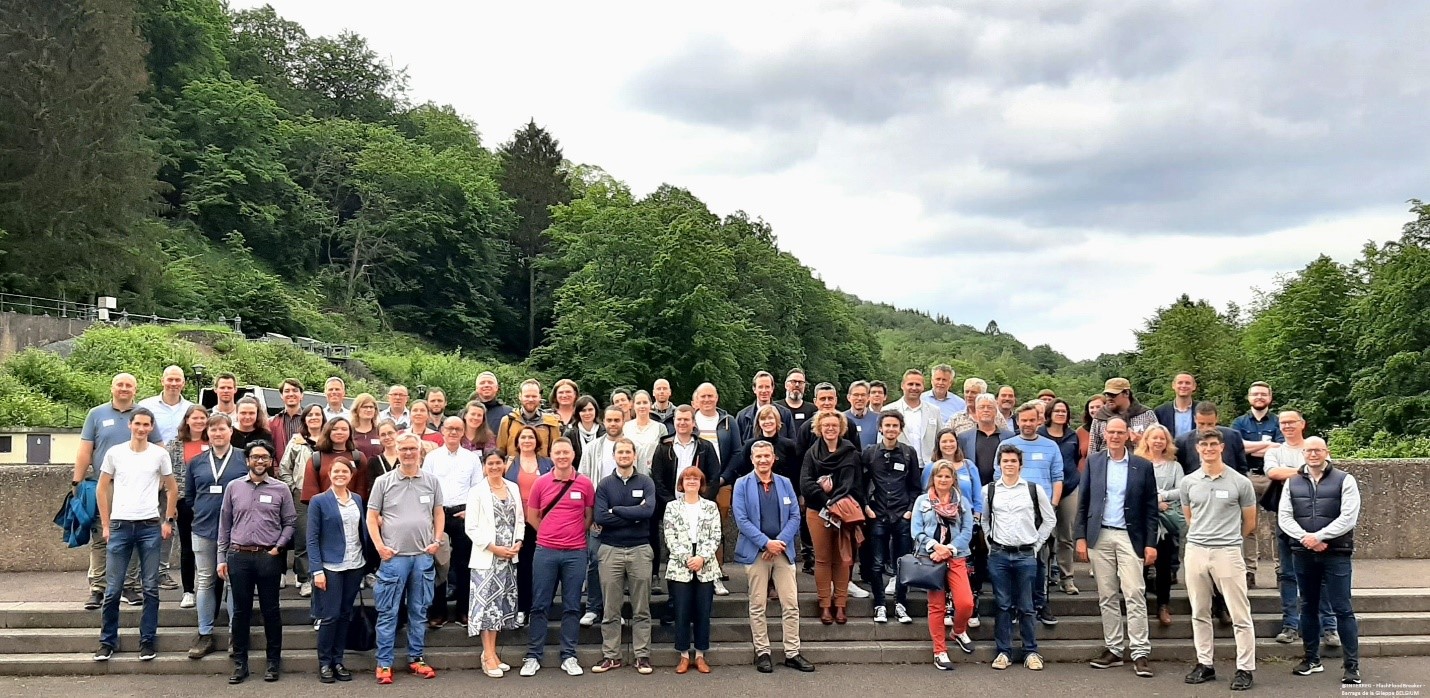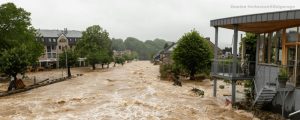Nearly three years after devastating flash floods caused significant death and damage in Germany and Northwestern Europe, a new research initiative is underway. The project “Make North-West Europe resilient against increasing extreme flash flood events (FlashFloodBreaker)” was officially launched in June 2024 in Liège. Gathering several partners from the Greater Region, the project aims to find new approaches to manage pluvial and fluvial flash floods-related risks.
Why flash floods are increasing
Flash floods are happening more often because of global warming. Warmer temperatures mean more water vapor in the air, leading to heavier rainfall. Northwestern Europe has steep cliffs, mining sites, urban areas, and wetlands, which make it more likely to flood. A flash flood can happen in just three hours, causing damage, evacuations, and even deaths.
The role of the University of Luxembourg
Prof. Félicia Norma Rebecca Teferle and Dr. Atal Anil Kumar from the Department of Engineering will work on two important topics. The first topic will focus on the development of resident training programmes using new immersive reality tools for increasing their awareness on how to respond during a flashflood. This will be developed in collaboration with Corps grand-ducal d’incendie et de secours (CGDIS) of Luxembourg. For the second topic, the team will establish a benchmark area and data sets for the collaborating emergency services from Ireland, Germany, and Netherlands to evaluate their drones and workflows, when photogrammetrically processing the aerial images collected during a flashflood to extract useful information which can be passed to the emergency responders during this event.
The FlashFloodBreaker initiative
The FlashFloodBreaker project started in January 2024 and will last for 54 months. Led by led by Emschergenossenschaft, Germany, and funded by the Interreg NWE programme, the project involves many different groups, including universities, research centers, emergency services, government agencies, regional authorities, Water Boards, and community organisations from Luxembourg, Germany, Belgium, and France. These groups will work together to share their knowledge and experience, improve local resilience to flash floods, and come up with strategies to help people and communities respond better to extreme weather events.

